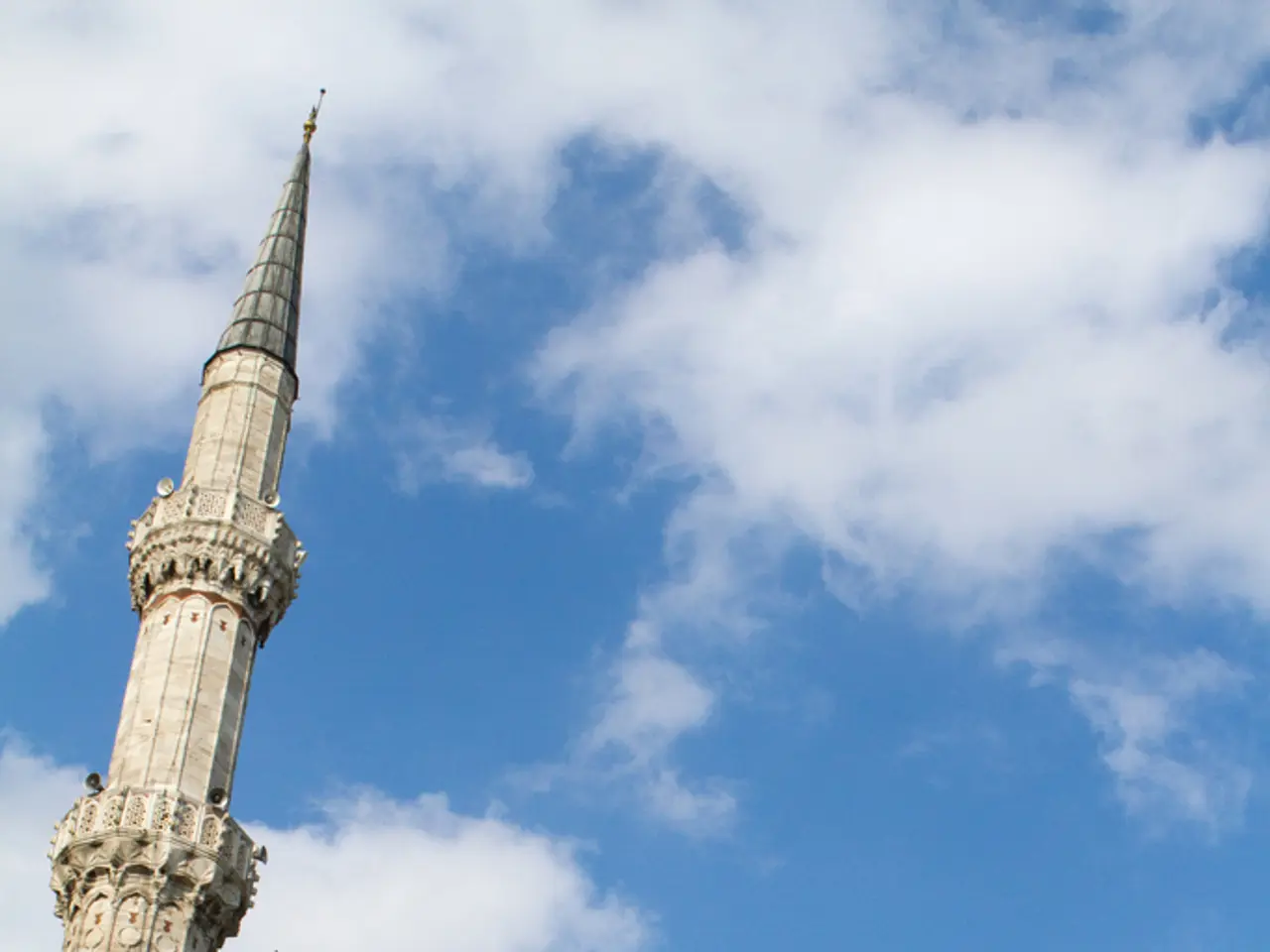Masses Gather at the Globally Preeminent Pilgrimage Spot, Consuming Food in Quantities Serving 22 Million Individuals
Millions Gather for Arbaeen in Karbala, Iraq
Every year, the city of Karbala in Iraq welcomes approximately 22 million believers for the Arbaeen gathering, a significant event in the Shia Muslim calendar. This tradition, outlawed under the regime of Saddam Hussein, was revived in 2003 following the U.S.-led invasion of Iraq.
Arbaeen is a reaffirmation of the Shia faith, commemorating the 40 days of mourning for Husayn, one of the 12 Shia Imams. The shrine of Husayn ibn Ali, a grandson of the prophet Mohammed, is located in Karbala and is the focal point of this spiritual journey.
The spirit of generosity, communal solidarity, and religious devotion is palpable during Arbaeen. Food is abundant, with traditional dishes such as Qeema (a spiced stew of minced meat and chickpeas), Masgouf (grilled fish), Dolma (stuffed vegetables), Kubba (meat-filled dumplings), and Samoon (Iraqi flatbread) being served freely to pilgrims.
This free distribution of food is carried out by mawkibs, or volunteer hospitality tents, set up along the pilgrimage routes and in Karbala. The tradition of refusing payment is customary, emphasizing the act as a charitable offering rather than commerce.
The mawkibs range from small, simple stalls to large-scale operations funded by sheikhs and managed by professional chefs. Ahmed Albayati, a volunteer, prepares 7,000 meals a day of shawarma during Arbaeen and serves nearly 500 pounds of it with assembly-line efficiency.
Butchers break down carcasses in alleyways on Al-Jumhuriya Street, close to Husayn's shrine, and women in colorful hijabs patiently queue for plates of dolmas. Teenagers serve Iraqi coffee, pomegranate juice, and pat napkins into hands at various stalls.
The celebration of Arbaeen extends beyond food, with over 14,500 service stations called mawkibs along the desert roads to Karbala. These stations provide free food, water, lodging, medical care, and foot massages, supporting the millions of pilgrims who travel to Karbala for Arbaeen.
An elderly man uses a scrap of cardboard as a fan to cool the passing crowds during the hot and punishing night. Syed Zaheer Abbas, a student from Pakistan, has walked nearly 50 miles from the holy city of Najaf and is served food and water constantly during his journey.
The Arbaeen gathering in Karbala is a testament to the power of faith, unity, and compassion, bringing together people from all walks of life in a collective experience of devotion and solidarity.
[1] Al-Jazeera. (2017, October 20). Arbaeen: The world's largest annual pilgrimage. Retrieved from https://www.aljazeera.com/news/2017/10/arbaeen-worlds-largest-annual-pilgrimage-171020132948495.html
[2] BBC News. (2018, September 20). Arbaeen pilgrimage: Millions gather in Iraq for Shia event. Retrieved from https://www.bbc.com/news/world-middle-east-45647927
[3] The Guardian. (2018, October 20). Arbaeen: The world's largest annual pilgrimage. Retrieved from https://www.theguardian.com/world/2018/oct/20/arbaeen-the-worlds-largest-annual-pilgrimage
[4] The New York Times. (2018, October 20). Arbaeen Pilgrimage in Iraq: Millions of Shiites Gather for a Mass Mourning. Retrieved from https://www.nytimes.com/2018/10/20/world/middleeast/arbaeen-pilgrimage-iraq.html
[5] Reuters. (2018, October 20). Millions gather for Arbaeen pilgrimage in Iraq. Retrieved from https://www.reuters.com/article/us-iraq-arbaeen-pilgrimage-idUSKCN1MN1Y7
- In contrast to the spiritual and cultural significance of Arbaeen, this event in Karbala, Iraq, also showcases a unique fusion of food-and-drink and cooking, as mawkibs offer free traditional dishes such as Qeema, Masgouf, Dolma, Kubba, and Samoon, enhancing the travel and lifestyle experiences for millions.
- For those venturing on cultural-travel journeys to the Middle East, Arbaeen in Karbala, Iraq, presents an opportunity not only to marvel at a profound expression of faith but also to immerse themselves in the local cuisine, tasting beloved dishes like Qeema and Dolma.
- As millions of pilgrims descend upon Karbala for Arbaeen, the heart of the city transforms into a hub for food, travel, and lifestyle, as the streets come alive with an abundance of traditional dishes prepared by volunteers, further underscoring the event's cultural and culinary impact.




